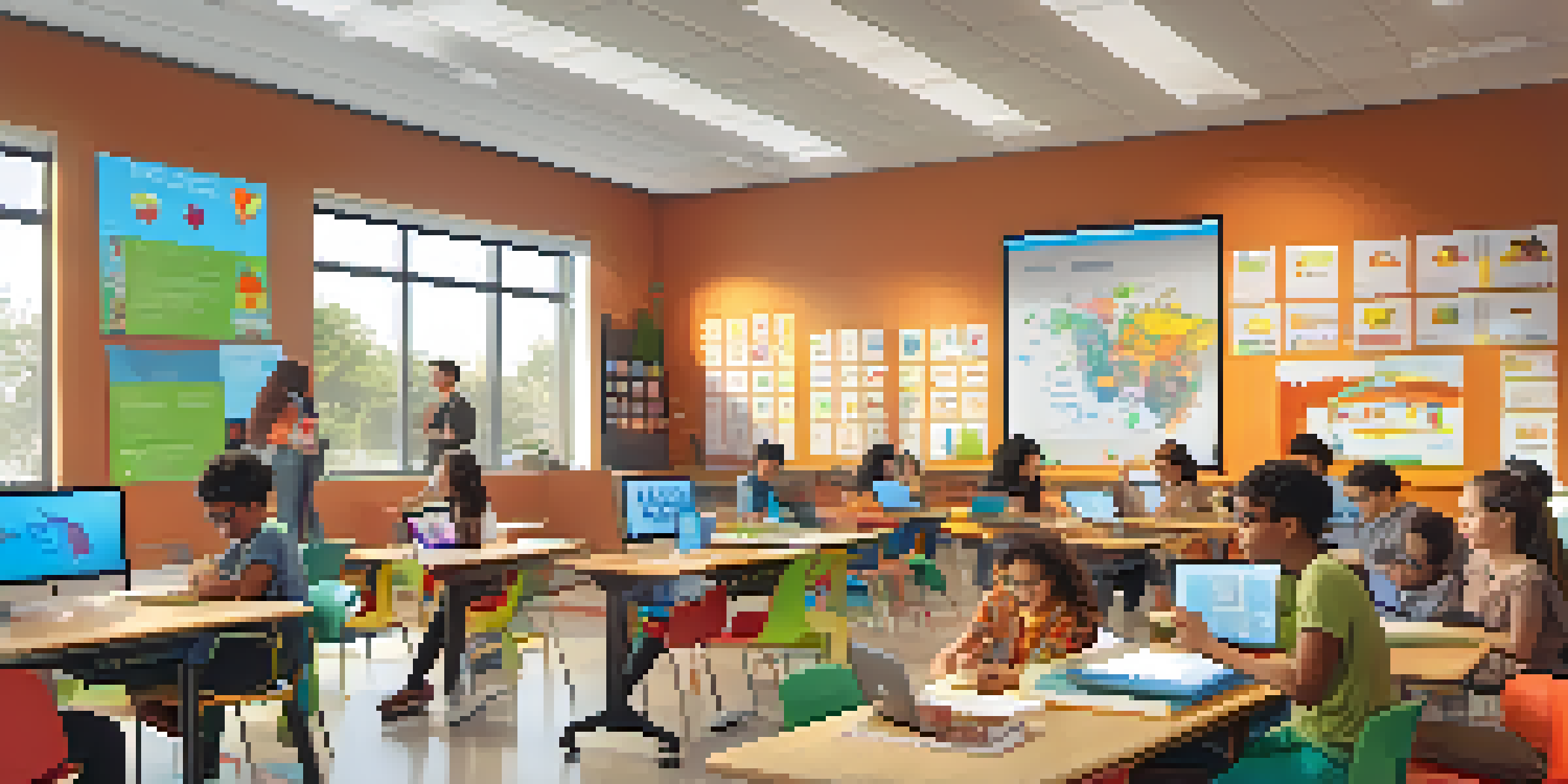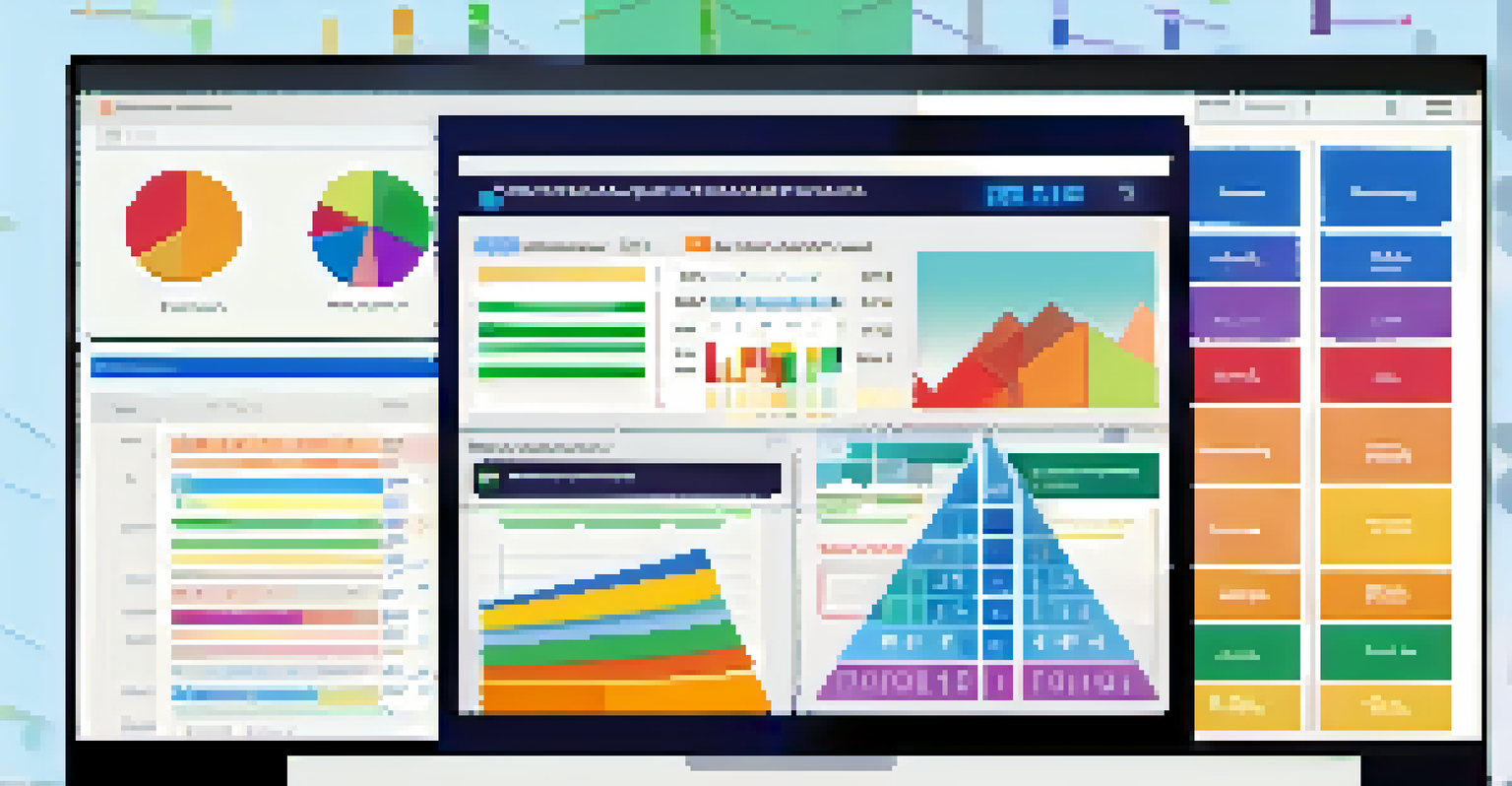Adaptive Learning and the Future of Educational Assessments

Understanding Adaptive Learning: A New Approach to Education
Adaptive learning is an educational method that tailors experiences to individual student needs. Unlike traditional learning, which often follows a one-size-fits-all approach, adaptive learning adjusts in real-time based on a student’s performance. This personalization helps learners grasp concepts at their own pace, making education more effective and engaging.
The great aim of education is not knowledge but action.
Imagine a classroom where each student has a unique learning path. For example, if a student excels in math but struggles with reading, the adaptive system will provide more challenging math problems while offering additional reading resources. This ensures that no student is left behind, and everyone can thrive in their areas of strength.
As education continues to evolve, adaptive learning technologies are becoming increasingly accessible. With tools like learning management systems and AI, educators can implement personalized learning experiences that cater to diverse learning styles, ensuring that every student gets the support they need.
The Role of Technology in Adaptive Learning Systems
Technology plays a crucial role in the effectiveness of adaptive learning systems. By utilizing data analytics and artificial intelligence, these systems can track student progress and identify areas of difficulty. This data-driven approach allows educators to make informed decisions about instructional strategies, leading to better educational outcomes.

Consider an online math platform that adjusts problem difficulty based on real-time performance. If a student answers several questions correctly, the system increases the challenge, pushing them to advance their skills. Conversely, if they struggle, the platform provides additional practice and resources tailored to their needs.
Personalized Learning Enhances Engagement
Adaptive learning tailors educational experiences to individual student needs, fostering motivation and deeper understanding.
Moreover, advancements in technology mean that adaptive learning can be implemented in various formats, from online courses to blended classrooms. As these innovations continue to develop, the potential for personalized education will only grow, offering students a more engaging and effective learning experience.
Shifting Paradigms: From Standardized Tests to Adaptive Assessments
Standardized tests have long been the benchmark for evaluating student performance. However, these assessments often fail to capture the full spectrum of a student’s abilities and learning journey. Adaptive assessments, on the other hand, adjust their difficulty based on the test-taker's responses, providing a more accurate measure of understanding and skill.
Education is not the filling of a pail, but the lighting of a fire.
For instance, in an adaptive assessment, a student who answers a question correctly may receive a more challenging question next, while a student who struggles might be given an easier follow-up question. This dynamic testing approach helps educators gain insights into each student's knowledge gaps and strengths.
Ultimately, replacing traditional standardized tests with adaptive assessments could lead to a more nuanced understanding of student performance. This shift allows educators to tailor their teaching strategies, ensuring that they meet the diverse needs of their students.
Benefits of Adaptive Learning for Students and Educators
The benefits of adaptive learning extend to both students and educators. For students, personalized learning paths foster a sense of ownership over their education, encouraging motivation and engagement. This tailored approach not only boosts confidence but also promotes a deeper understanding of the material.
Educators also benefit from adaptive learning systems, as they can track student progress in real-time and adjust their teaching methods accordingly. This flexibility allows teachers to focus their efforts where they are needed most, providing targeted support to students who may be struggling.
Technology Enables Real-Time Feedback
Utilizing data analytics and AI, adaptive learning systems allow educators to track progress and adjust teaching methods effectively.
As a result, adaptive learning creates a more collaborative and supportive classroom environment. With both students and educators working together towards shared goals, the educational experience becomes more enriching and effective.
Challenges and Considerations in Implementing Adaptive Learning
While adaptive learning holds significant promise, there are challenges and considerations to address. One major concern is the equitable access to technology, as not all students have the same resources. Ensuring that every learner has access to the necessary tools is crucial for the success of adaptive learning initiatives.
Additionally, educators must be trained to use these systems effectively. Understanding how to interpret data and implement adaptive strategies can be daunting for some teachers. Professional development and ongoing support are essential to help educators navigate this new landscape.
Finally, it’s important to maintain a balance between technology and traditional teaching methods. While adaptive learning is valuable, it should complement rather than replace the personal connections and interactions that occur in a classroom setting.
The Future of Educational Assessments: Trends to Watch
As we look to the future, several trends in educational assessments are emerging. One of the most significant is the integration of artificial intelligence and machine learning, which will continue to enhance adaptive learning systems. These technologies will enable even more precise personalization, further improving student outcomes.
Another trend is the growing emphasis on formative assessments, which provide ongoing feedback rather than relying solely on summative assessments like final exams. This approach allows educators to make timely adjustments to their teaching and provides students with insights into their progress.
Adaptive Assessments Improve Evaluation
Unlike standardized tests, adaptive assessments provide a more accurate measure of student understanding by adjusting difficulty based on responses.
Finally, collaboration among educators, technologists, and policymakers will be key in shaping the future of educational assessments. By working together, we can ensure that assessments are not only effective but also inclusive and equitable, ultimately benefiting every learner.
Conclusion: Embracing the Adaptive Learning Revolution
In conclusion, adaptive learning represents a transformative shift in the educational landscape. By personalizing learning experiences and assessments, we can better meet the diverse needs of students and enhance their educational journeys. This approach not only supports academic achievement but also fosters a love of learning.
As we embrace this revolution, it’s essential to remain mindful of the challenges and ensure that all students have access to the resources they need. By prioritizing equity and support, we can create a more inclusive educational environment.

Ultimately, the future of educational assessments is bright, with adaptive learning leading the way. By leveraging technology and innovative approaches, we can empower students and educators alike, paving the path for a more effective and engaging learning experience.